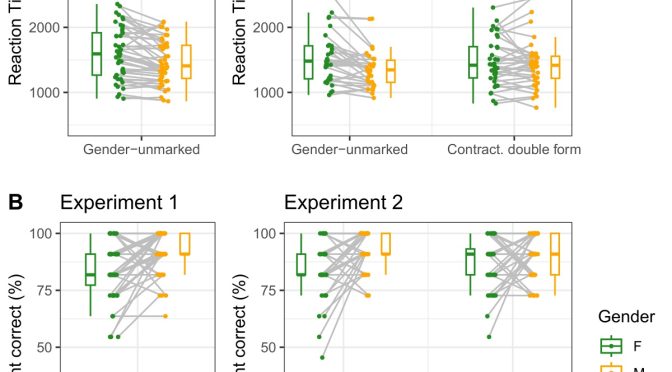Selected publications and presentations:
English
E. Spinelli, J.-P. Chevrot, L. Varnet (2023). Neutral is not fair enough: testing the efficiency of different language gender-fair strategies, Frontiers in Psychology, vol. 14. (article)
French
– Intervention dans l’émission « Avec Science » (France Culture) : Écriture inclusive : le point médian supprime les biais de genre
– Site du CNRS : Langage inclusif : pour le cerveau, le neutre n’est pas neutre
– Science et Avenir : Ecriture inclusive : ce qu’en dit la science
– Le Journal du CNRS : L’écriture inclusive par-delà le point médian
Sur ce blog :
– Réponse aux réactions sur l’écriture inclusive
– Langage inclusif : pour le cerveau, le neutre n’est pas neutre

